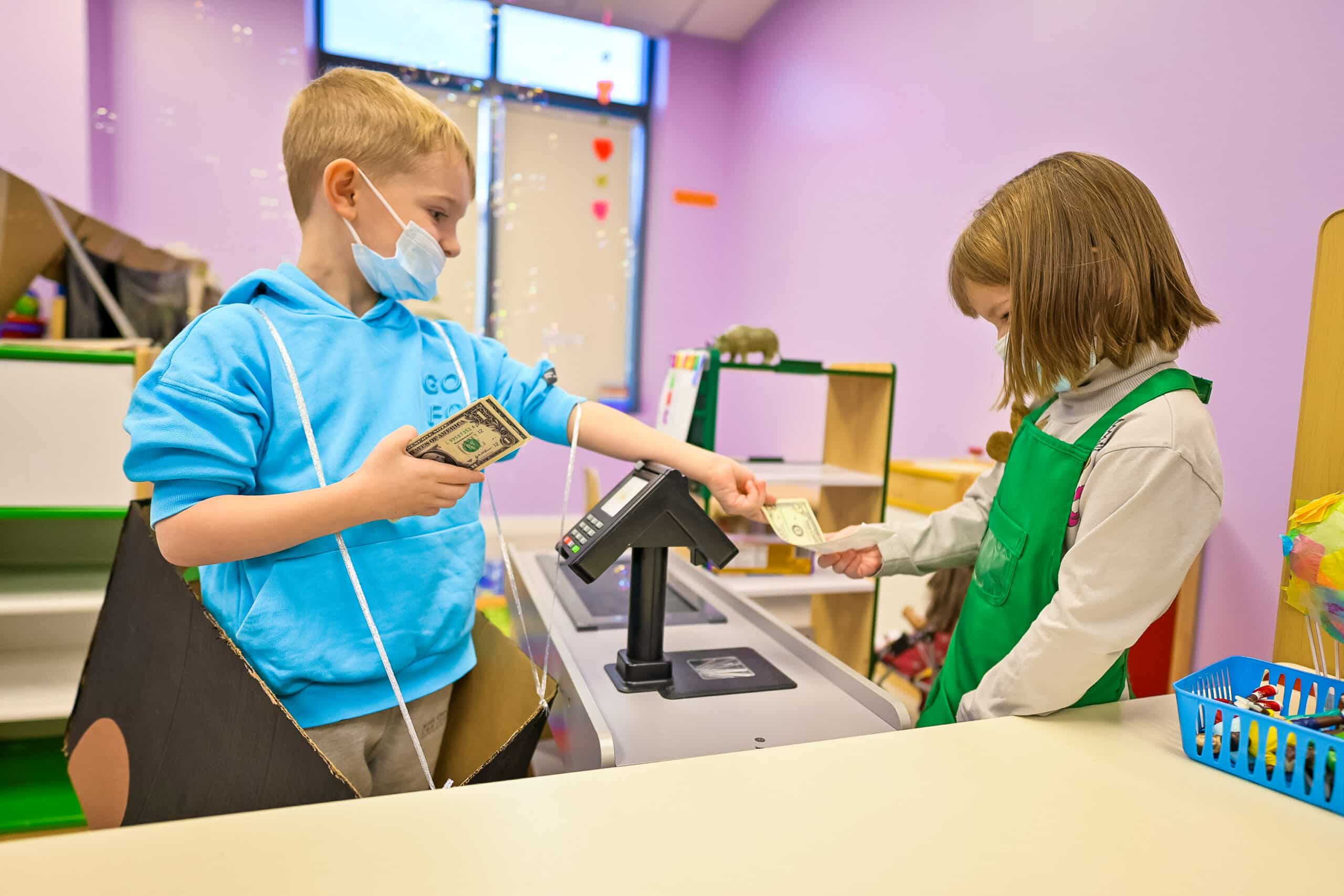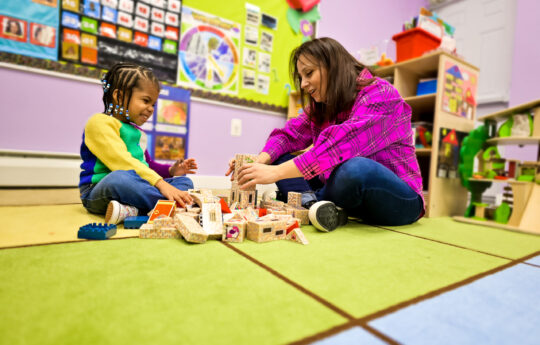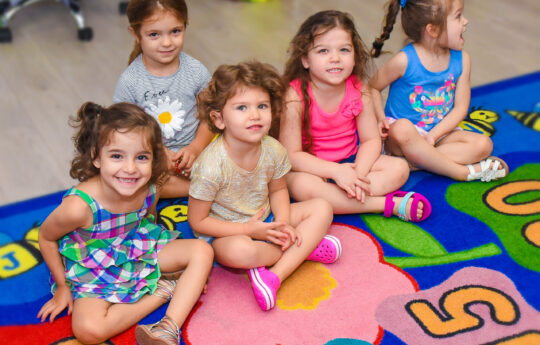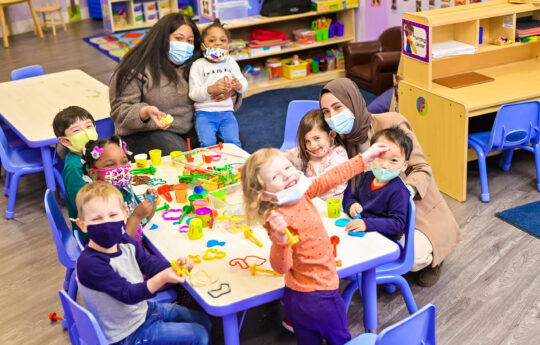
Nowadays, preschoolers frequently experience a lot of memory issues. This makes many parents wonder how to improve their child’s memory because it is important for a child not only in daycare but also in school settings and beyond. It is important to keep in mind that poor memory in children is uncommon, and more often than not, it means a child’s memory just hasn’t matured enough. Therefore, we will discuss how to make improvements using simple techniques such as reading books, playing word games, proper dieting and more.
How to Improve Working Memory in Children at School
Does your child struggle to recall rules of math and other instructions? Does she frequently lose her train of thought? If so, your kid may struggle with working memory issues.
Working memory, also known as operational memory, is the capacity to “hold in the mind” brief pieces of knowledge required for ongoing mental activity. It is connected to the management of information held in short-term memory. Many times children directly use their working memory skills during the learning process. By actively utilizing specific memory boosters in your daily life, you can assist your child in developing their memory.
- Games to improve memory. This is one of the most effective and pleasant ways to improve child’s memory at school. For example, teachers may ask the kid to repeat 10 words they call out to him. In this way, it is possible to make the assignment more challenging by having students list words related to a specific theme (fruits and vegetables, food, toys, trees, flowers, what objects are in the room, etc.). Repetition of information that can’t seem to get the baby to remember is also widely used during learning mode.
It is preferable to employ game activities with preschoolers who are 3 to 4 years old so that they can rapidly and readily retain anything that piques their attention. At this age, it is especially important to read fairy tales, stories, and poems with emotional overtones. A youngster finds it very simple to recall new information when it triggers strong feelings.
- Utilization of numbers: You may choose to skip them, or count the characters in fairy tales or songs at this age to improve recall. As an illustration, after telling a child a story in which there were three bunnies, you can ask, “Do you recall how many bunnies there were in that story?”. Using this simple trick, the youngster starts to remember as a consequence.
- Reading books. This habit encourages youngsters to read independently when they are old enough so that the book becomes their best friend. Afterward, it is best to ask the child to describe what they read.
- Develop the child’s attention span. Numerous activities require focus, including identifying differences between two images. Usually, the child can be engaged in this activity while simultaneously developing his attention span and creative thinking skills.
The capacity to replicate objects remembered during childhood (ages 4-5) grows dramatically. In fact, children start to intentionally decide that they want to memorize specific information and practice it until they master it. They learn to read, grasp basic mathematical processes, and are able to categorize information so they can remember it better.
- Learning a foreign language. Learning a second language is a terrific way to sharpen memory and is also highly beneficial to memory development in children. Learning about five to ten new words every day is sufficient. Also, playing an instrument or dancing are two other ways to enhance memory.
- Sports activities. Physical activity will benefit the child’s memory as well as his physical health. Exercise boosts blood flow to the brain and has a positive impact on how well it functions, especially when done outside.
- Healthy diet. In developing a young organism’s working memory, nutrition is also crucial. It is important to include more foods in the diet that are rich in nutrients required to enhance brain function and improve memory. Top memory foods include bananas, walnuts, carrots, spinach, broccoli, bananas, and fish.
- Don’t push the child’s brain too hard. Don’t push the kid too hard if they’re feeling exhausted. Instead, give their mind time to rest. This is because information is either not perceived at all or is poorly perceived by a person who is fatigued.
- Only putting useful information in a child’s head. Children need to be able to filter the information that is presented to them. Therefore, try to ignore repetitive and superfluous information as such data is not necessary and merely clogs the brain.
- A half-hour to an hour of brisk walking or simple walking boosts blood flow to the brain by 15%. The brain is stimulated by regular walking, which improves both memory and focus a great deal. The removal of metabolic waste from the brain, which aids in the prevention of Alzheimer’s disease, is another benefit.
- Happiness! A person’s memory is directly impacted by the hormone of joy, which is produced by the body when they are happy. Science has shown that youngsters who are joyful remember new knowledge more quickly and effectively and are less likely to become tired. Researchers from the German University of Magdeburg established a direct link between long-term memory and the happy hormone (also known as dopamine). Dopamine levels between 20 and 30 percent are regarded as appropriate for memory.
Children will be able to memorize texts, people, numbers, and words 2–5 times better after they complete all the below recommendations at school. Improvement of the ability to retain information for longer and accelerated recall of the required information won’t also go unnoticed. You can also help your baby develop memory while remaining focused on daily tasks and concerns.
In fact, the majority of the tasks listed above are designed to train memory under real-world circumstances because we need to be able to recall information quickly and accurately regardless of the circumstances. You don’t need to set aside time for memory training. It can be done at school, at home, and when traveling. Teach the baby to commit the first lesson’s material to memory.
How to Improve Working Memory at Home
Working Memory is a crucial brain function that lays the groundwork for learning and growth. It is best to start developing it at a young age, and specific activities for improving children’s memory that parents can perform at home or while taking their kids on walks will assist.
The most crucial issue is to continually practice the memory and develop into a brain trainer for your child’s memory, or possibly your own. A child’s memory can be improved and strengthened at any time–a special class is not required to do so. The acknowledgment of the child’s desire and the inclusion of play in training are needed conditions.
The formation of memory necessitates complex effort at home in addition to ongoing memory training entails:
- Make sure the child is getting enough food. They need to consume enough vitamins, particularly group B vitamins, fatty acids, and magnesium.
- Ensuring that the daily schedule is right. The child needs to get enough sleep. Sleep is essential for healing and for releasing nervous tension, which could otherwise make it hard to recall or reproduce information.
- Playing sports stimulates the brain.
- More strolls ensure that the child has the chance to get enough oxygen.
- Join your youngster in learning breathing techniques. He will be taught how to manage his body, excess tension will be released, and the brain’s oxygenation will be improved.
Homework Routines to Improve Working Memory
It’s crucial to engage the youngster in interesting conversations and find out about his preschool experiences and dreams. The child can already imagine clearly at this age. It can be an animal or a figure from a fairy tale, and you can use it to play the game throughout the day. The child’s ability to visualize and conjure up a mental picture is what matters most.
If it’s an automobile, inquire as to its appearance, color, size, and capabilities. You can jokingly ask the child to recall this car during the day to get him to describe it at least once more. The kid keeps remembering, and at some point, may even start to recall and imagine this particular scene in his head so clearly that he can draw it.
Morning Routines to Improve Working Memory
Every day should start with morning exercise, which is not called exercise for nothing because it chases away the last traces of sleepiness and gives you energy for the rest of the day. It is employed throughout a person’s life, beginning in early childhood.
Morning gymnastics improves breathing, blood flow, muscle strength, working memory and central nervous system activation. Daily physical activity fosters the child’s need for mobility, improves cardiovascular health, boosts immunity, and induces a happy emotional state. Only when gymnastics is done regularly, methodically, and until it develops into a habit or a necessity is it beneficial.




